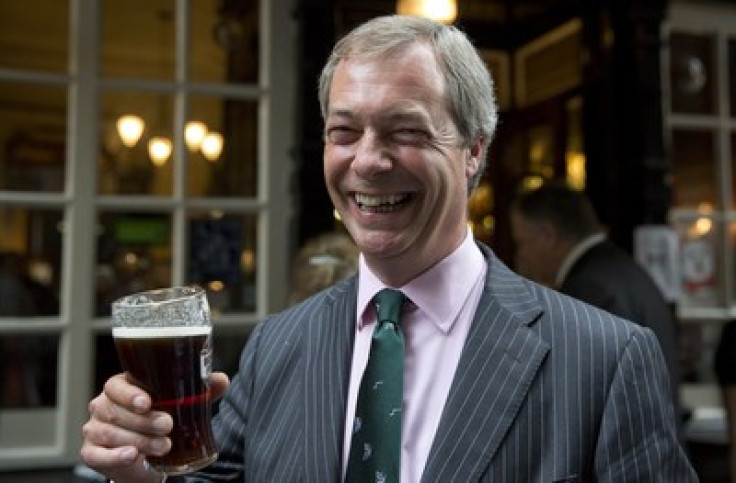Labour Thrashing Tories in Marginals as Poll Expose Ukip Threat to Cameron

Tory fears that the rise of Ukip could deny them power at the next election have been powerfully underlined by a new set of constituency polls.
The survey, carried out for senior Ukip donor Alan Bown, echoes findings by Tory Lord Ashcroft and shows the party's position in marginal seats is far worse than suggested by national polls where it is narrowing the gap with Labour.
And that poses a major challenge for David Cameron in the 2015 election, suggesting all his attempts to neutralise the Ukip threat, specifically with a pledge to hold a referendum on membership of the EU, has failed.
The latest figures from four marginal constituencies suggest the Tories falling back by as much as 15 points thanks to either a surge in support for Nigel Farage's Ukip or even some supporters switching to Labour.
Perhaps most worrying for Cameron is that, when asked if voters would still back Ukip even if that meant letting in Labour – the core of Cameron's anti-Ukip message - many said they would.
There is a mixed message for Labour, however, with signs that some supporters may be more likely to back Ukip than Ed Miliband's party.
The news has been welcomed by Ukip, which is eager to show that it can draw support from across the political spectrum, not just from disillusioned Tory supporters.
An analysis of the findings shows that in the key swing seat of Great Yarmouth, for example, Labour would oust Tory minister Brandon Lewis as a result of a rise in support for Ukip from 5% to 30%, putting it in second place and driving the Tories into third place.
The seat is 73rd in Labour's list of targets but the poll shows that Farage's party would take almost as many votes from Labour as the Tories, not that that will be much comfort to David Cameron. Part of the explanation lies in the fact the area has been particularly hit by immigration.
But even in a seat such as Crewe and Nantwich where there has been no Ukip surge, Labour is heading for a win on 46%, a rise from 34% in 2010, with the Tories lagging at 33%, down from 46%. Ukip stand at 11%, just 3% up from the general election.
The poll shows the Tory party hanging on to Bognor Regis and Littlehampton, where it currently holds a solid 13,000 majority, but with Ukip breathing down its neck at 27%, just 10% behind.
The less good news for Farage is that one of the seats he has been tipped to favour to put him into the Commons, Folkestone and Hythe, may not play ball. His party has shot up from fourth place to second, 8 points behind the Tories on 35%.
But there is a deeply worrying finding for Cameron when Ukip voters answered the question: "I would rather vote Ukip than Conservative even if that means Ed Miliband becomes prime minister". A narrow majority of 53% said they would.
The alternative question: " I would rather stop Ed Miliband from becoming prime minister, even if that means I had to vote Conservative rather than Ukip" attracted only 33% support.
But the polling also suggests there is a large margin of doubt. When Ukip supporters were asked how they would vote if there was no Ukip candidate the answer was 38% would not vote at all while a further 10% did not know.
The polling dramatically highlights the problems faced by the Tories as they struggle to find a way of combatting the Ukip threat.
At the moment there is a belief that Farage's party will do extremely well in next year's European parliament elections, possibly even coming first, because voters will see it as a good opportunity to protest.
But the hope is that support will then start to fade away as attention is focussed on the parties who actually stand a chance of winning the 2015 general election. And that will be back to the more traditional three party race.
It would, however, be highly dangerous for the big parties to take that for granted. There is such a strong anti-politics, anti-politician sentiment at the moment that it is more difficult than ever to predict the 2015 result.
© Copyright IBTimes 2024. All rights reserved.






